Because It’s Better to Have It and Not Need It… Than the Other Way Around
Let’s Talk About Snowshoeing Gear. The Real Stuff.
You’ve got your snowshoes. Great start.
You’ve found a trail or mapped a route. Even better.
But if you think snowshoeing is just a matter of strapping on some gear and tromping through the powder, you’re missing a few critical pieces of the puzzle (and you might end up cold, wet or worse — miserable).
At Snowfoot, we design our gear for professionals, from rescuers to guides to mountain workers, but we’ve also done our fair share of casual backcountry wandering. And whether you’re going out for a day trip or planning a multi-hour snowshoe tour, the gear you bring can make or break your experience.
So, here it is: a no-nonsense breakdown of essential snowshoeing equipment you’ll want to carry on the trail.
1. Snowshoes That Fit The Job
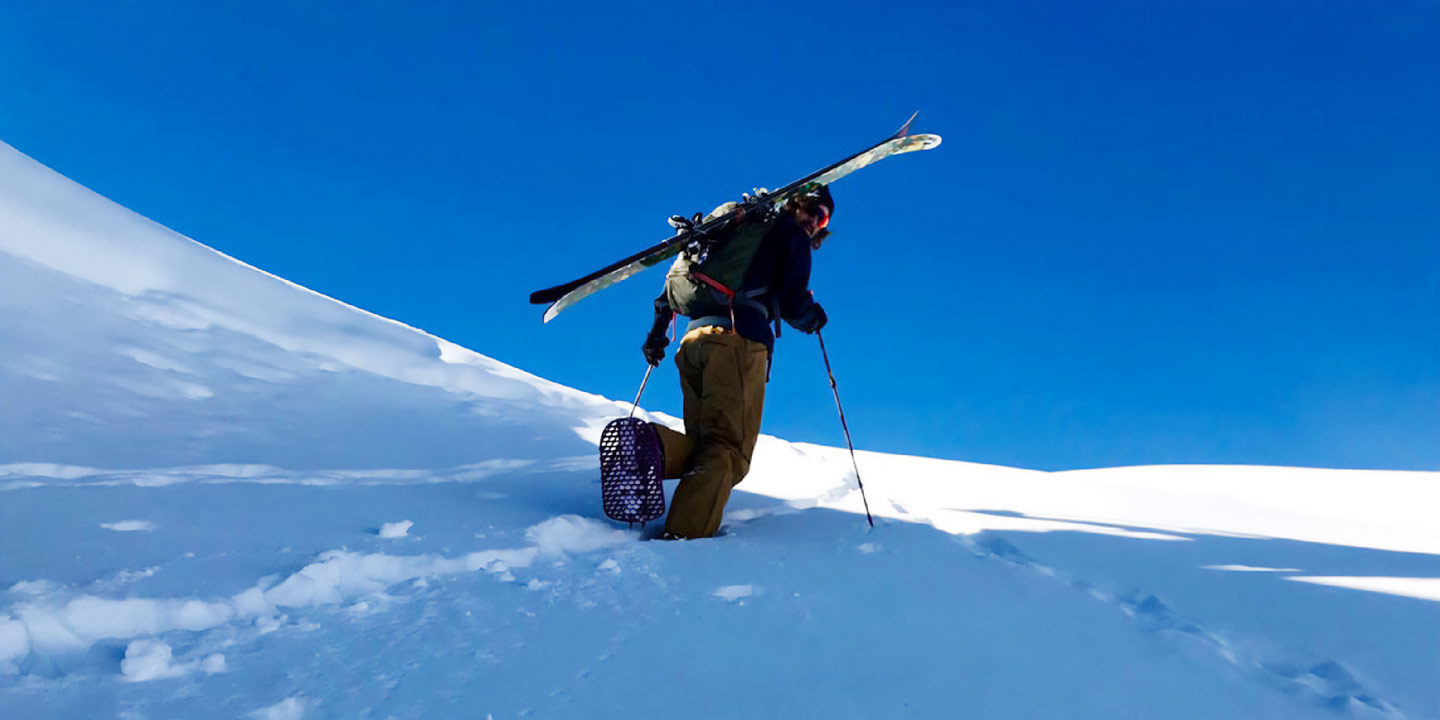
Let’s start with the obvious:
Your snowshoes matter. A lot.
If you’re heading into steep, variable terrain, you want something compact, crampon-compatible and stable (like, say, a Snowfoot). But whatever your choice, your snowshoe should match:
- Your terrain (flat vs. steep vs. technical)
- Your snow conditions (powder, crust, melt/freeze)
- Your loadout (Are you carrying a pack? Are you pulling a sled?)
Rule of thumb: don’t use clunky tennis-racket-style snowshoes in the mountains. Save those for historical reenactments or hanging on the cabin wall.
2. Footwear: Warm, Waterproof & Worth It
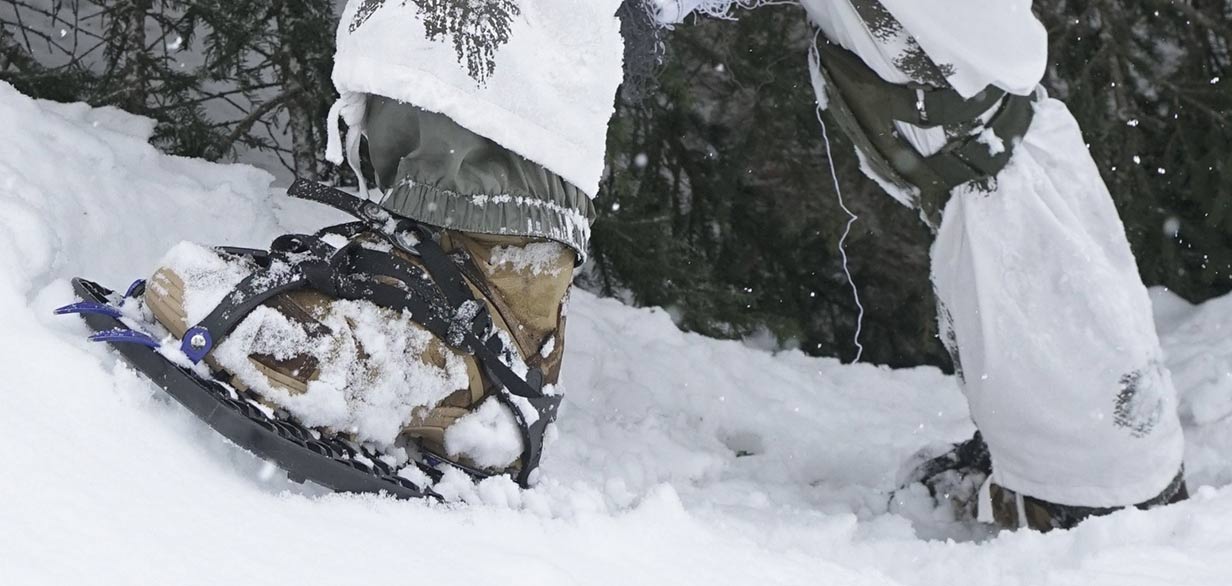
Your snowshoes are only as good as what’s inside them.
Invest in a solid pair of waterproof boots with good insulation and ankle support. Avoid running shoes or thin hikers, even if the weather seems mild. Your feet will thank you when you’re halfway up a ridge and not sliding around in slush.
Bonus Tip:
Gaiters. Yes, they look a little dorky. But they keep snow out of your boots and lower layers dry. You won’t regret it.
3. Poles: Your Other Legs
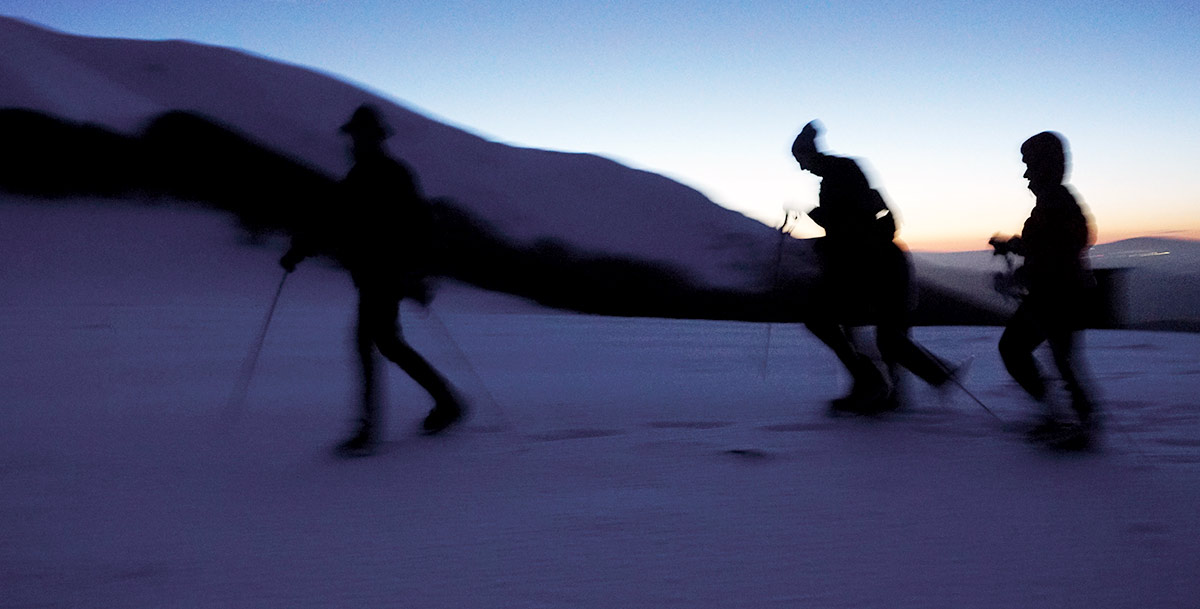
Trekking poles or ski poles help you:
- Stay balanced on uneven terrain
- Keep rhythm on climbs
- Save your knees on descents
- Probe for buried hazards under the snow
Go with adjustable ones, and don’t forget powder baskets. You’ll be annoyed if your poles punch right through soft snow.
4. Layers: Dress Like An Onion
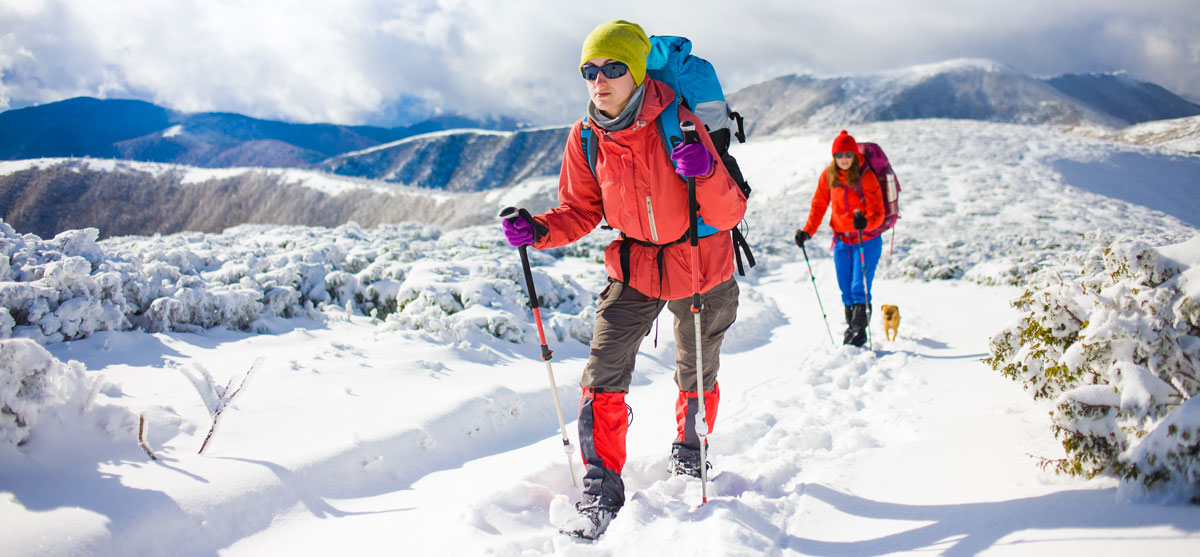
Here’s the thing about snowshoeing: you will get warm. Even on frigid days, the effort of moving through snow can heat you up fast.
The secret is layering:
- Base layer: Moisture-wicking (no cotton!)
- Mid layer: Insulating, try wool or fleece
- Outer shell: Waterproof and windproof
- Extra insulation: A down or synthetic puffy to throw on during breaks
- Hat and gloves: Always bring extras, as they get wet or lost faster than you’d expect
Pro Move:
Even on warm-day treks, toss a lightweight emergency bivy or foil blanket in your pack, just in case things go sideways.
5. Navigation Tools: Even On Familiar Trails
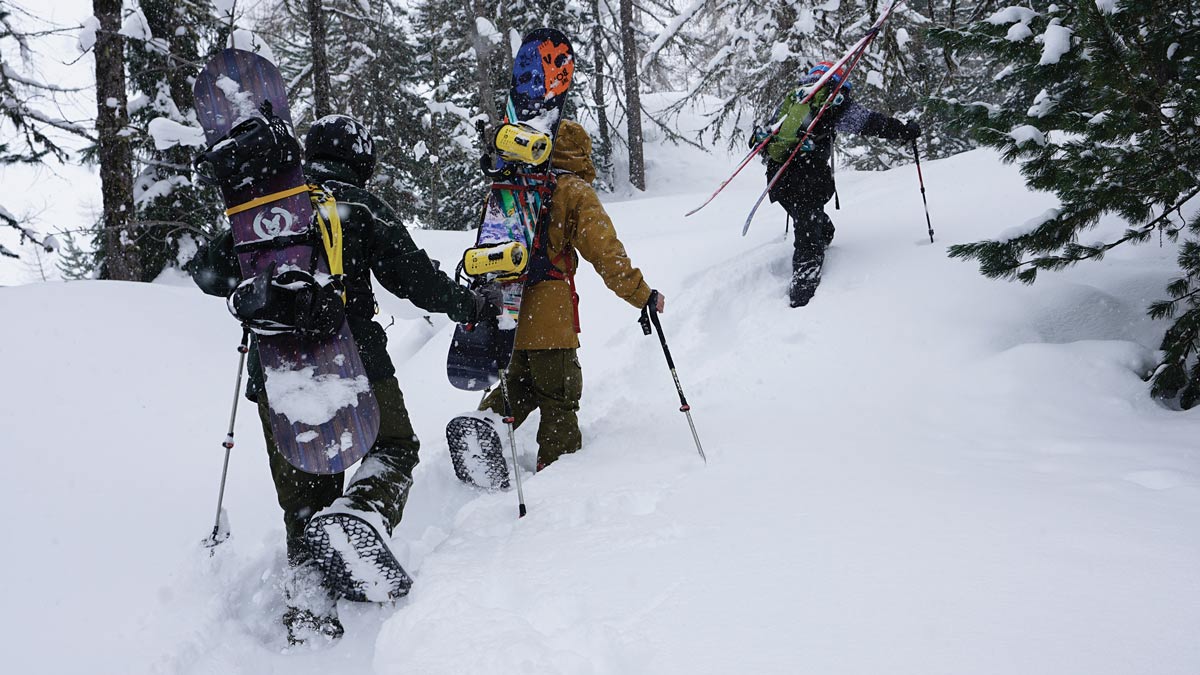
Snow makes everything look the same. Trails disappear. Landmarks vanish. You’ll be shocked how easy it is to get turned around.
Bring:
- A map and compass (and know how to use them)
- GPS or app (download offline maps ahead of time)
- A charged phone with battery backup
If your plan is to just “follow the tracks back,” consider this: what if it starts snowing again?
6. Food & Water: Not Optional
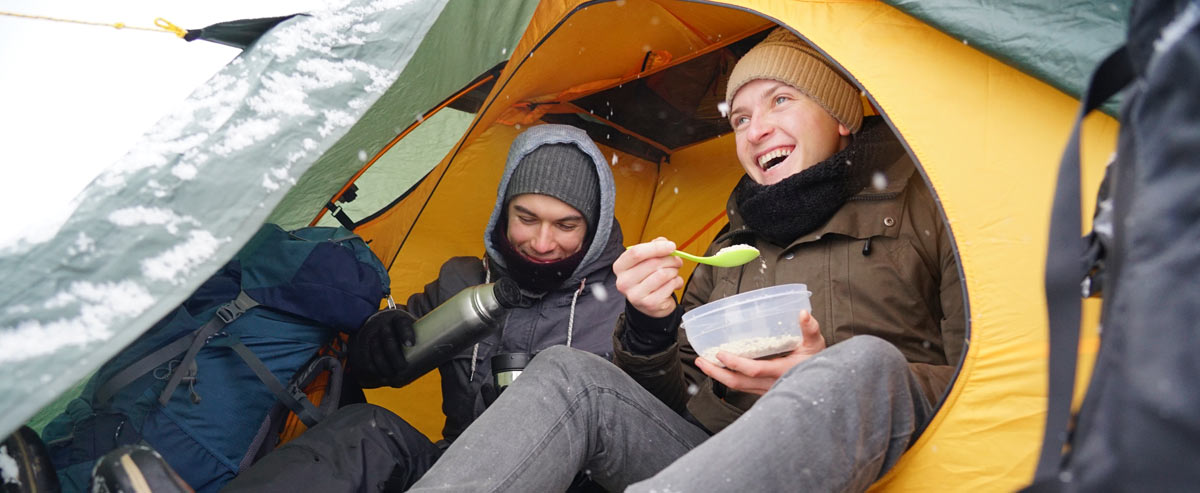
Cold weather burns more calories. You’ll be hungrier than you think.
- Bring high-calorie snacks that don’t freeze into bricks. Think: nuts, bars, jerky, etc.
- Carry more water than you’d bring on a summer hike
- Use an insulated bottle or sleeve, because hydration tubes freeze fast
- Hot tea or broth in a thermos? Game changer.
7. Safety Gear: Pack For The Worst, Hope For The Best

Snowshoeing isn’t dangerous by default. But bad weather, fatigue, injury or gear failure can escalate quickly. Be prepared with:
- First aid kit
- Headlamp (yes, even if you’re only out for the day)
- Multi-tool or knife
- Firestarter
- Whistle
- Small repair kit (duct tape is your friend)
If you’re in avalanche-prone terrain, you should also have:
- Avalanche beacon
- Probe
- Shovel
- Training
Seriously — know before you go.
8. Backpack: It’s Not Just For Snacks
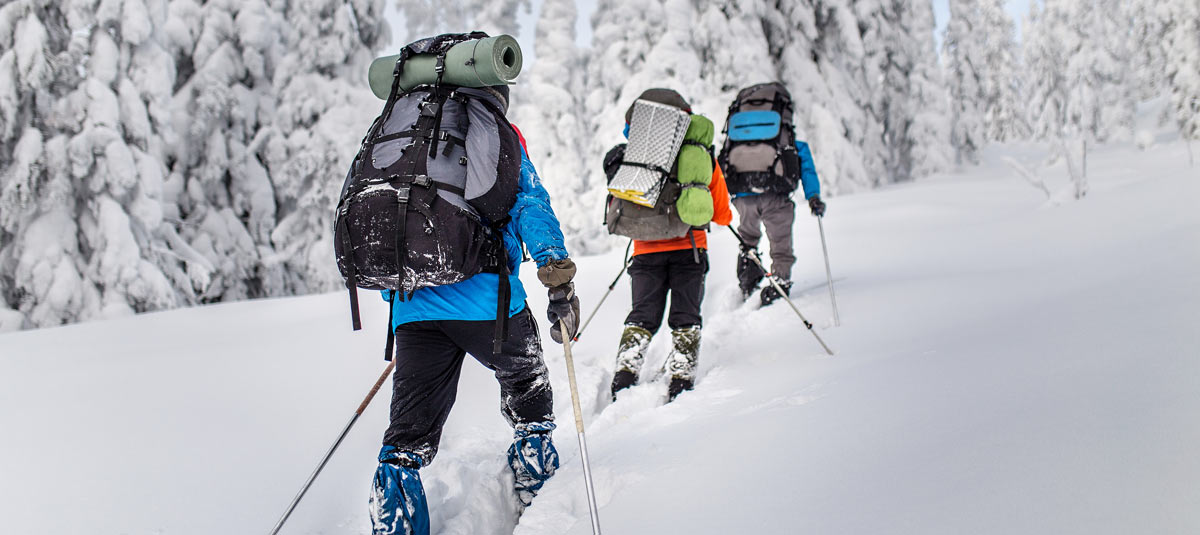
A good pack carries everything above comfortably. It should:
- Fit close to your body
- Have room for layers and emergency gear
- Offer external lashing points (for snowshoes or poles when you’re not using them)
We’ve also found that a top lid you can access without unpacking everything saves major time and frustration when conditions change.
9. Sunglasses, Sunscreen & Lip Balm
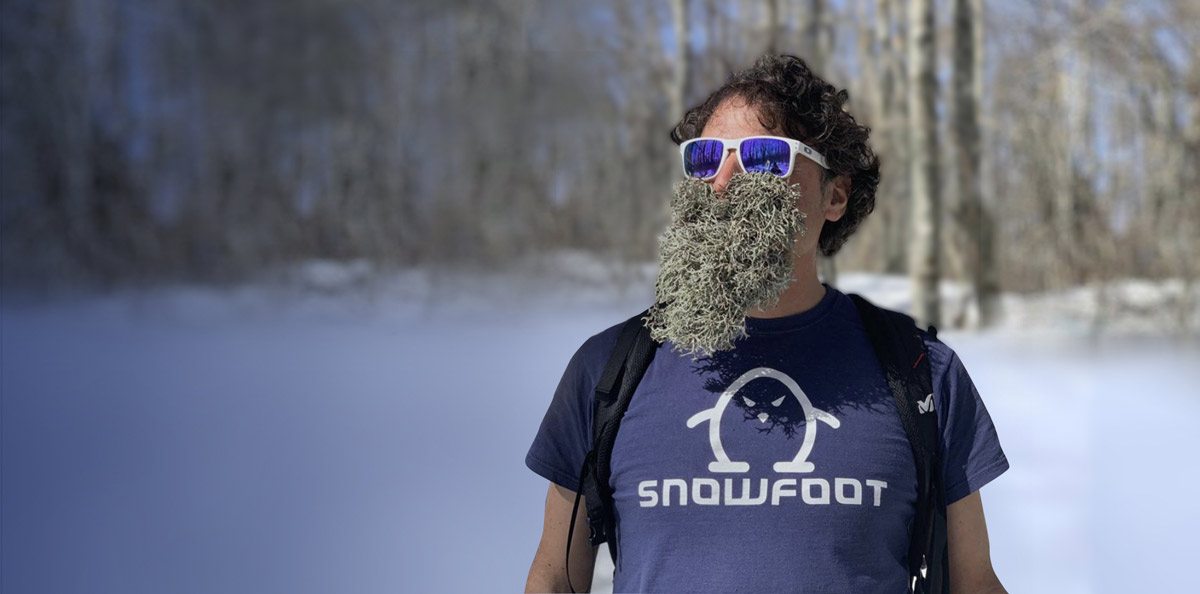
Yes, even in winter.
Snow reflects UV like crazy, and you’ll fry your face before you realize it. Keep a tiny bottle of sunscreen and lip balm in your pocket. Don’t forget your eyes… snow blindness is no joke.
10. A Plan & Someone Who Knows It
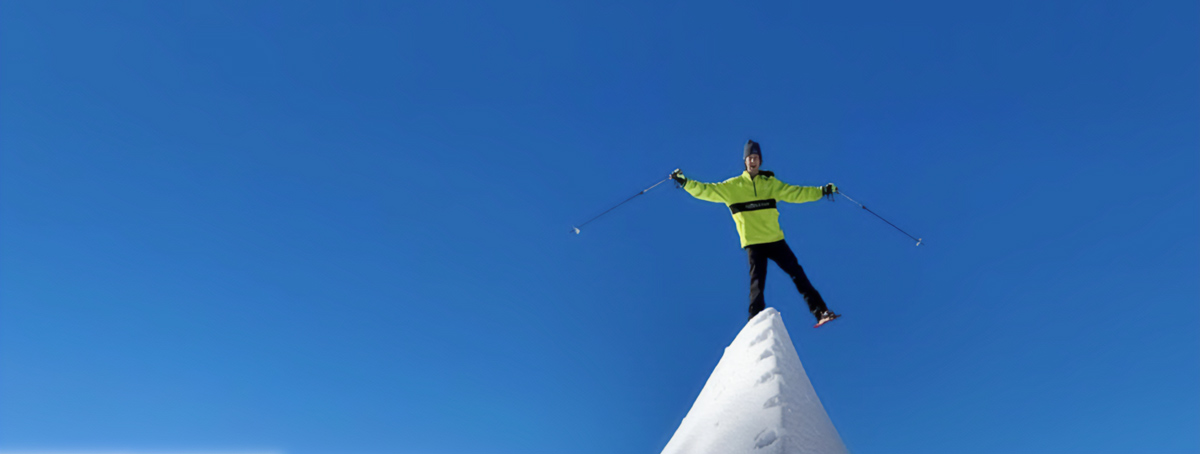
It doesn’t matter how experienced you are or how short the trip seems. Tell someone where you’re going and when you expect to be back. Every year, people disappear in the backcountry because they didn’t think it was “a big deal.”
Bonus points if you leave a copy of your map or intended route.
Snowshoeing Is Simple. But It’s Not Stupid.
One of the beautiful things about snowshoeing is its simplicity: no lift ticket, no fancy technique, just you and the snow. But don’t let that simplicity fool you into thinking it’s risk-free.
The right equipment won’t just keep you comfortable, it can make the difference between a great day and a miserable, potentially dangerous one.
Final Thoughts From The Snowfoot Team
We built Snowfoot to be part of a complete alpine toolkit, not a novelty item. Whether you’re exploring a quiet trail, training for a big mission or heading out on patrol, your snowshoes are just one piece of the system.
Pack smart. Plan well. Travel light, but never unprepared.
And most importantly: Enjoy the snow. It won’t last forever.
Happy trails, and safe steps.
– The Snowfoot Team
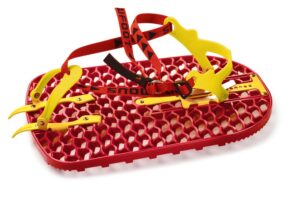 Ready to gear up for your next snowshoeing adventure?
Ready to gear up for your next snowshoeing adventure?
Don’t settle for half-ready. Bring gear that’s built for the backcountry. Snowfoot snowshoes are trusted by mountain professionals, guides and weekend wanderers alike. Whether you’re heading out for a quick trail loop or a full-day trek, make sure your gear works as hard as you do.
Shop Snowfoot today and step into winter with confidence.
